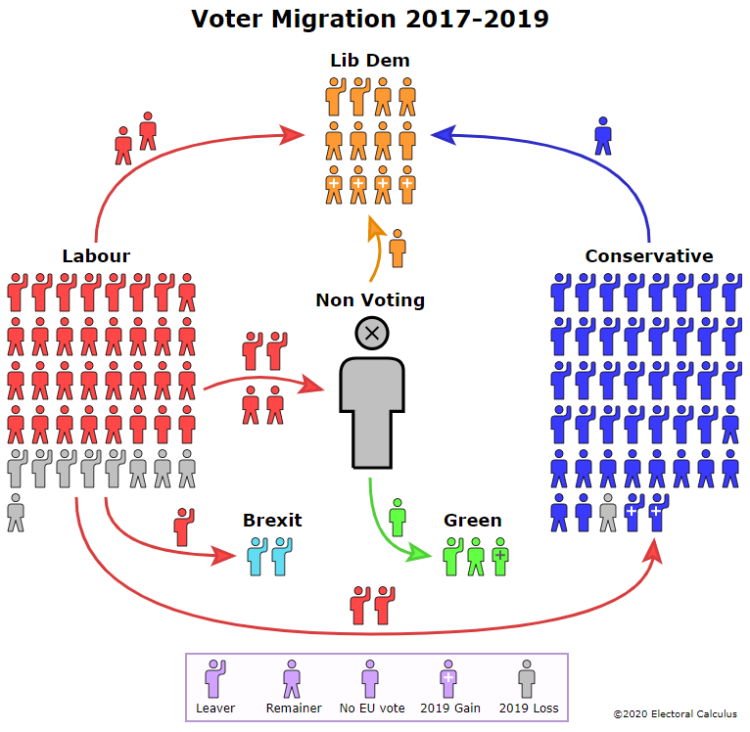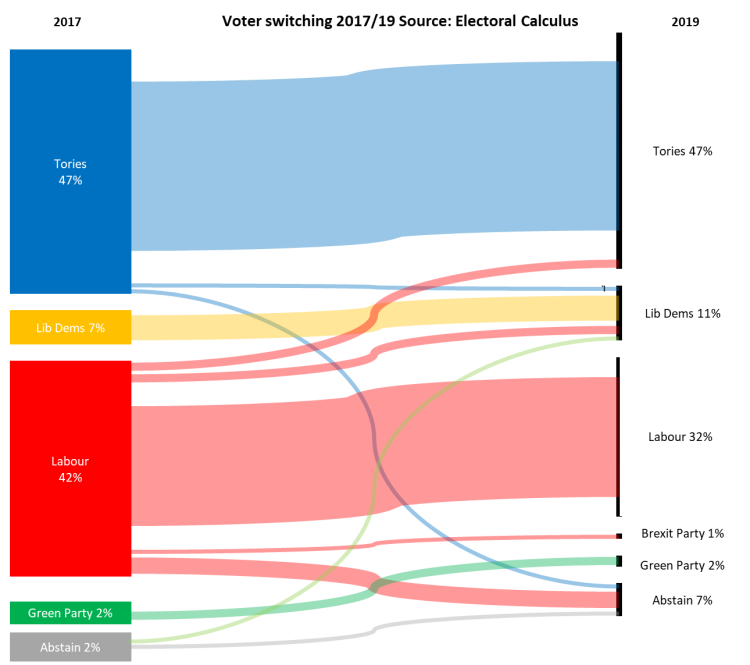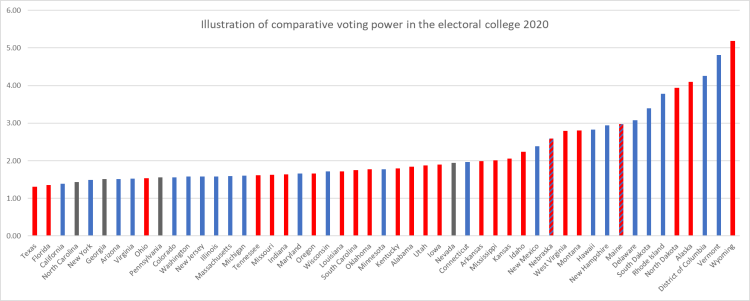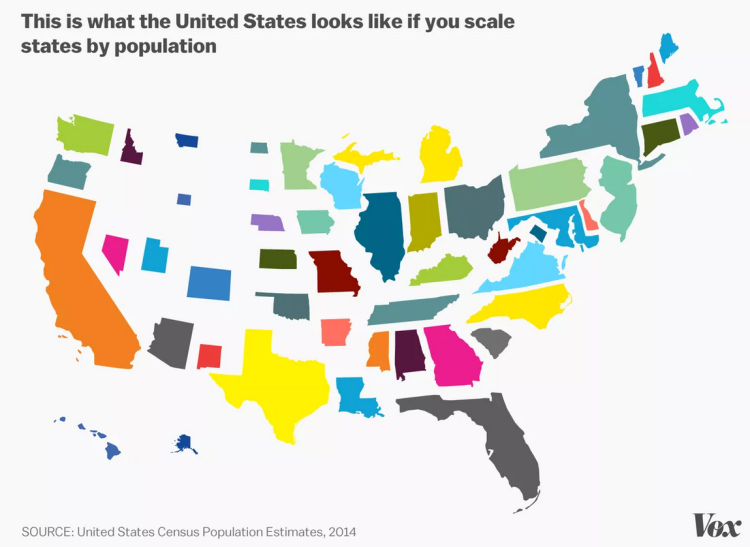I am considering getting involved in a so-called debate about Lavery, Tricket and Smith’s recent revision of their No Holding Back report, which has been seized with alacrity by the usual suspects, possibly unfairly; it seems more nuanced than its authors and fans suggest but I may not be reading it sufficiently well. I am reminded of the Data Praxis report, Tory Landslide, Progressives Split, which shows how it might have been worse and blames our FPTP electoral system. I precis them by saying,
“Labour lost because, Leavers in Labour seats, switched to the Tories, but more Labour Remainers from 2017 switched; Corbyn (& the manifesto) were now unpopular and thus too many Tory Remainers stayed with the Tories.
Dave Levy
We should also note that Lavery, Tricket and Smith do not mention Scotland; it’s not their expertise but there’s no answer without the Scots.
While looking at what to say, and for help in understanding the problem, I was concerned to be truthful at the state of the red wall parties’ health, but it seems hard to get the local contact rates, which will all be poor nor to get the member/voter ratio. I looked at Labour Together’s report, again to see if they said anything useful about local Party organisation/structure and campaigning. This is difficult to be honest about because of the back office chicanery in Labour HQ on 2017 & 2019 and the myths and maybe truths about how Momentum’s volunteer organisation saved us in 2017 get in the way. They i.e. Labour Together don’t say anything useful or concrete about CLP organisation. We should also note that the Democracy Review did nothing to improve local campaigning effectiveness either. Perhaps we should be listening to Crispin Flintoff on his campaign to fund CLPs properly.
About the Labour Together report, I found this, at Immigration News, which pulls no punches. I say, using their words,
[the] New Labour Together Report investigates Labour’s 2019 Election Defeat with crushing honesty – but glosses over senior saboteurs behind the Labour Leaks dossier. A 150-page report published this week by research group Labour Together serves up some stone-cold truths and analysis in what may have led to Labour’s downfall in the 2019 General Election. “
Olivia Bridge – Immigration news JUne 2020
I have written about “What happened?”, and created a reading list tagged “ge2019” on my diigo feed, and to remind me and others of what wise people said, I also reproduce the Electoral Calculus chart on where votes came and went.

I have made a sankey chart from this, it would seem that this chart is for England & Wales only, but for other source notes, you’ll need to check out the original article.

The Labour Together report is strong on the need to get the strategy right; I think we may need to end the factionalism first and recognise the members must have the first and last word but we also need to resolve the fault lines in our coalition, because much of the pro-Brexit positions came from Labour politicians on the right of the party whose heritage is the “Control Immigration” mug and future road is that of Blue Labour, “work, family, community”. Adopting this sort of rubbish and its racist sub-text will jeopardise Labour’s city heartlands, apart from just being wrong. …



